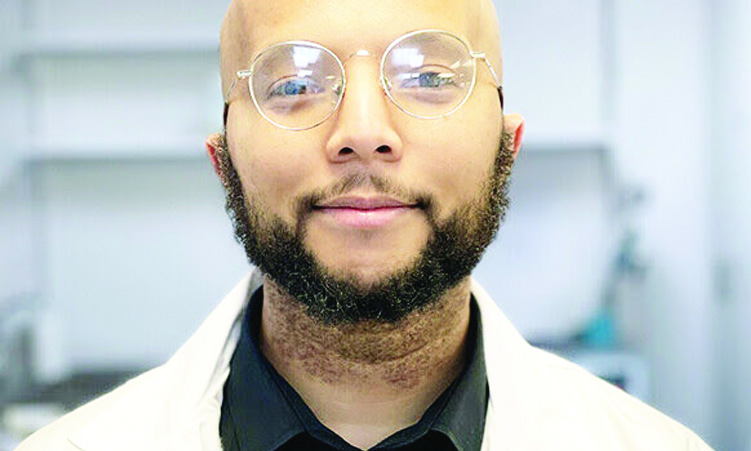The fight against HIV-1 has long been hailed as a triumph of science, funding, and global cooperation. Yet, as the virus continues to evolve, so must our approach to combating it. A recent commentary published in Nature Reviews Microbiology, led by Monray Williams from the North-West University (NWU) in South Africa, issues a stark warning: global complacency is no longer an option. The focus must shift to sub-Saharan Africa, the epicenter of the HIV-1 epidemic, to prevent losing control.
Despite bearing the brunt of more than two-thirds of global HIV-1 infections, sub-Saharan Africa remains a glaring blind spot in research efforts. Most studies predominantly concentrate on subtype B, which is prevalent in the Western world but only accounts for 12% of cases worldwide. In contrast, subtype C, responsible for over half of global infections and prevalent in sub-Saharan Africa, is significantly underexplored. This disparity, as highlighted by Williams and his co-authors, severely hampers progress in developing effective treatments, vaccines, and ultimately, a cure.
“We cannot end a global pandemic by studying just a fraction of its biology,”
emphasizes Williams, underscoring the critical need for a more comprehensive understanding of HIV-1’s diversity. The virus’s capacity for error-prone replication and frequent recombination underscores the importance of studying its myriad forms. Subtype-specific variations play a pivotal role in disease progression, drug resistance, and vaccine efficacy. However, current data disproportionately favors subtype B, with only 15% representing subtype C, despite its prevalence. Even key viral proteins crucial for research, such as gp120 and Nef, are better characterized in subtype B, further exacerbating the knowledge gap.
The Congo Basin, believed to be the cradle of the HIV-1 pandemic, harbors the highest viral diversity, yet remains largely unexplored. This untapped reservoir of viral lineages could potentially contain strains resistant to existing interventions or capable of sparking future outbreaks. Even in South Africa, one of the countries hardest hit by HIV/AIDS and ranking third globally in research output, research predominantly focuses on subtype B. Subtypes A, D, and various recombinant forms, each with distinct clinical and epidemiological profiles, are left woefully under-analyzed. The commentary warns of the dire consequences that could arise if new variants with heightened transmissibility or drug resistance emerge unchecked.
In response to these disparities, Williams and his colleagues propose a transformative approach named ‘Harness’ to rectify the imbalance and reshape global health research priorities. Central to this strategy is the principle of self-reliance, advocating for African nations to bolster their research capacities by investing in local laboratories, biobanks, genomic surveillance systems, and most importantly, nurturing the next generation of scientists. Currently, Africa contributes a mere 2% of global biobank authorship, a deficiency that imperils sustained progress.
The paper also champions enhanced South-South collaboration, emphasizing the importance of sharing data, tools, and expertise within Africa and across the Global South to establish a more equitable and inclusive research paradigm. It calls for funding allocations to align with disease burden rather than the preferences of external donors, as foreign aid often distorts priorities in favor of northern concerns, leaving African researchers marginalized and underfunded. Structural reforms are imperative to challenge the dominance of northern institutions in shaping the global health agenda.
African-led research must embody ethical, accountable, and community-driven practices that are attuned to the cultural and socio-economic contexts influencing public health. Williams and his colleagues stress that reducing stigma, ensuring equitable access, and engaging affected communities are as crucial as scientific advancements like gene sequencing. Recent cutbacks in global health initiatives like Pepfar underscore the urgency for regional autonomy. Amid this challenging landscape, Williams sees an opportunity for Africa to seize control of its health destiny.
“This is the moment for Africa to reclaim agency over its health future,” he asserts, signaling a call to action. The end of the HIV-1 pandemic will not be dictated solely by external actors but will arise from the collective efforts of African laboratories, clinics, and communities, provided they receive the requisite support and investment. While the scientific evidence is unequivocal, navigating the political complexities remains a formidable task.
It is evident that the path to eradicating the HIV-1 pandemic necessitates a fundamental shift in research priorities and a reimagining of global health governance. As we look ahead, it is imperative to heed the rallying cry to invest in African-led research, not only for the continent’s well-being but for the global community as a whole. The journey towards a world free of HIV-1 requires a concerted effort to empower Africa and ensure that its voices, expertise, and experiences are central to shaping the future of global health.









Leave feedback about this